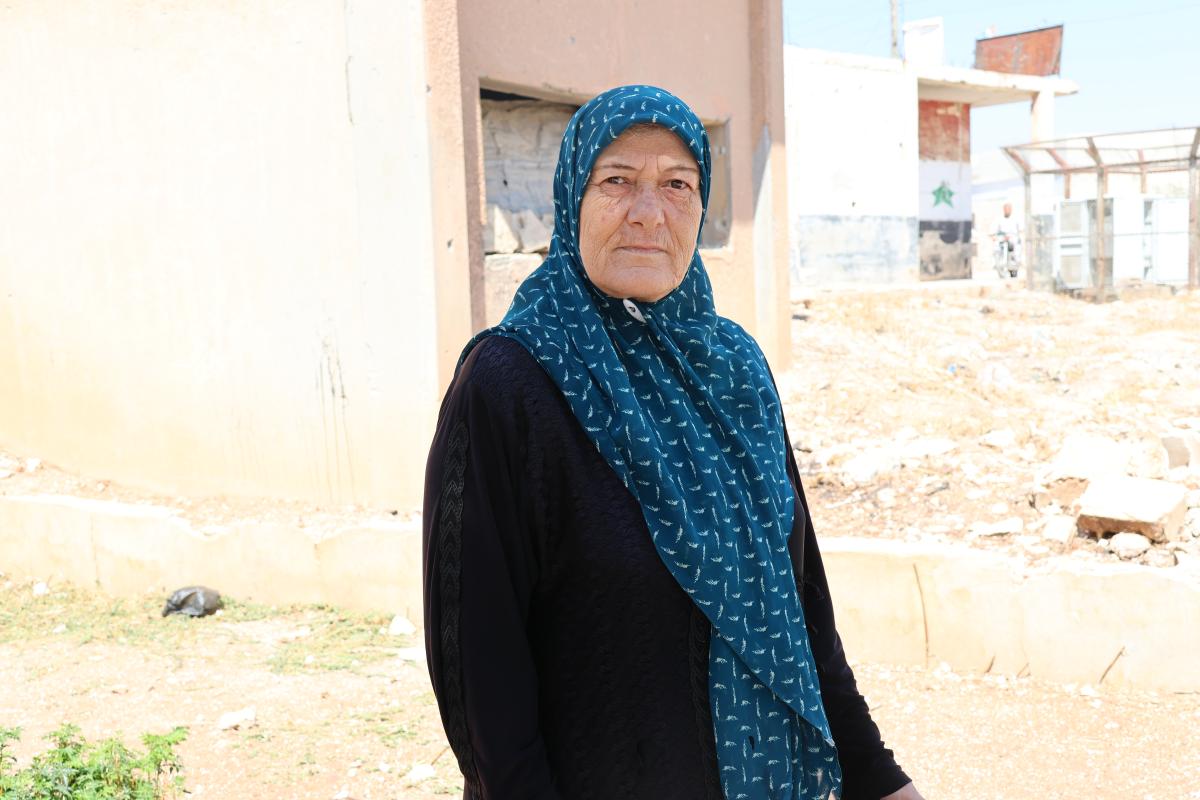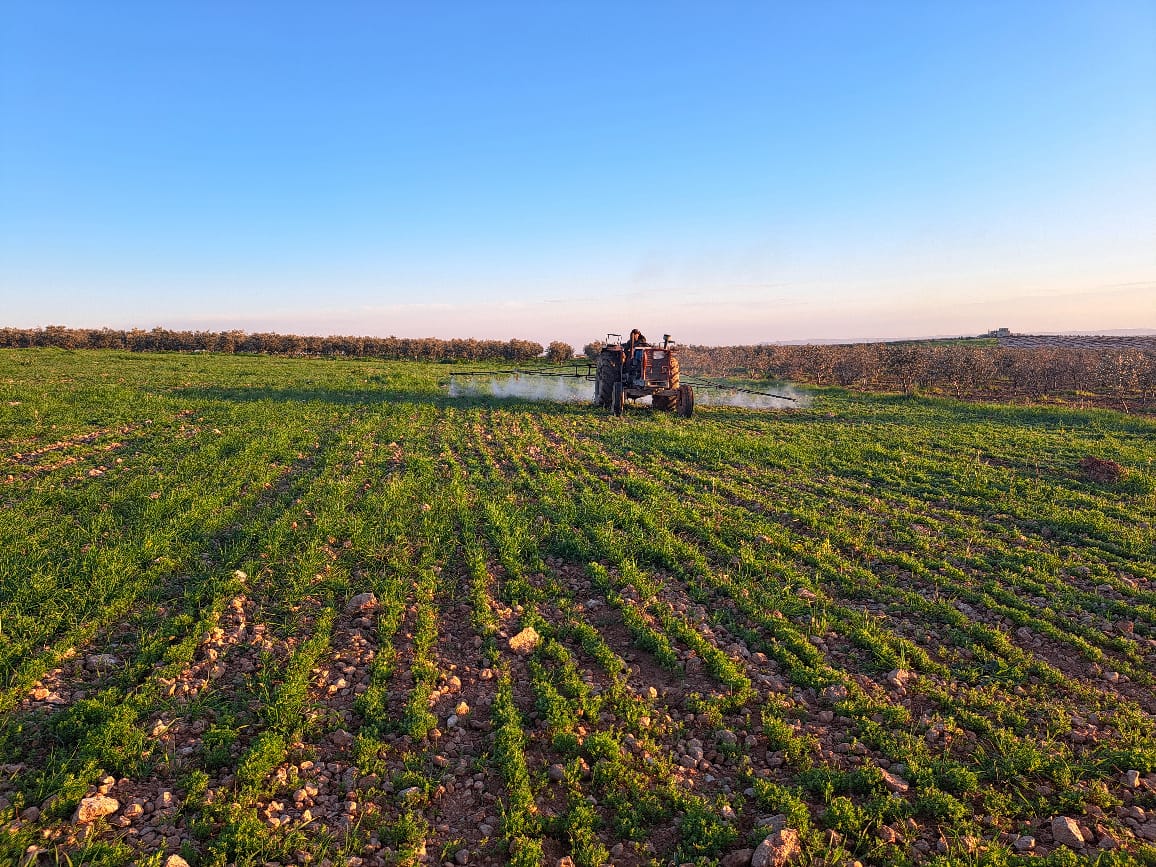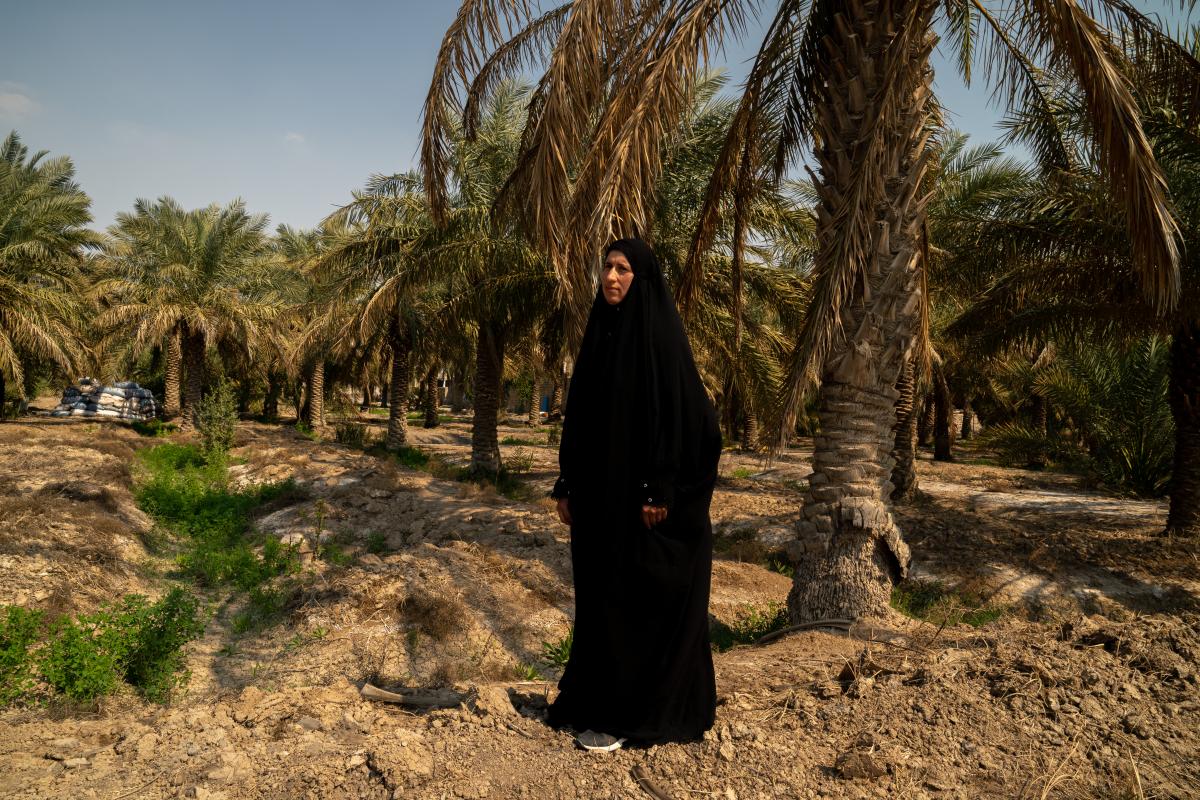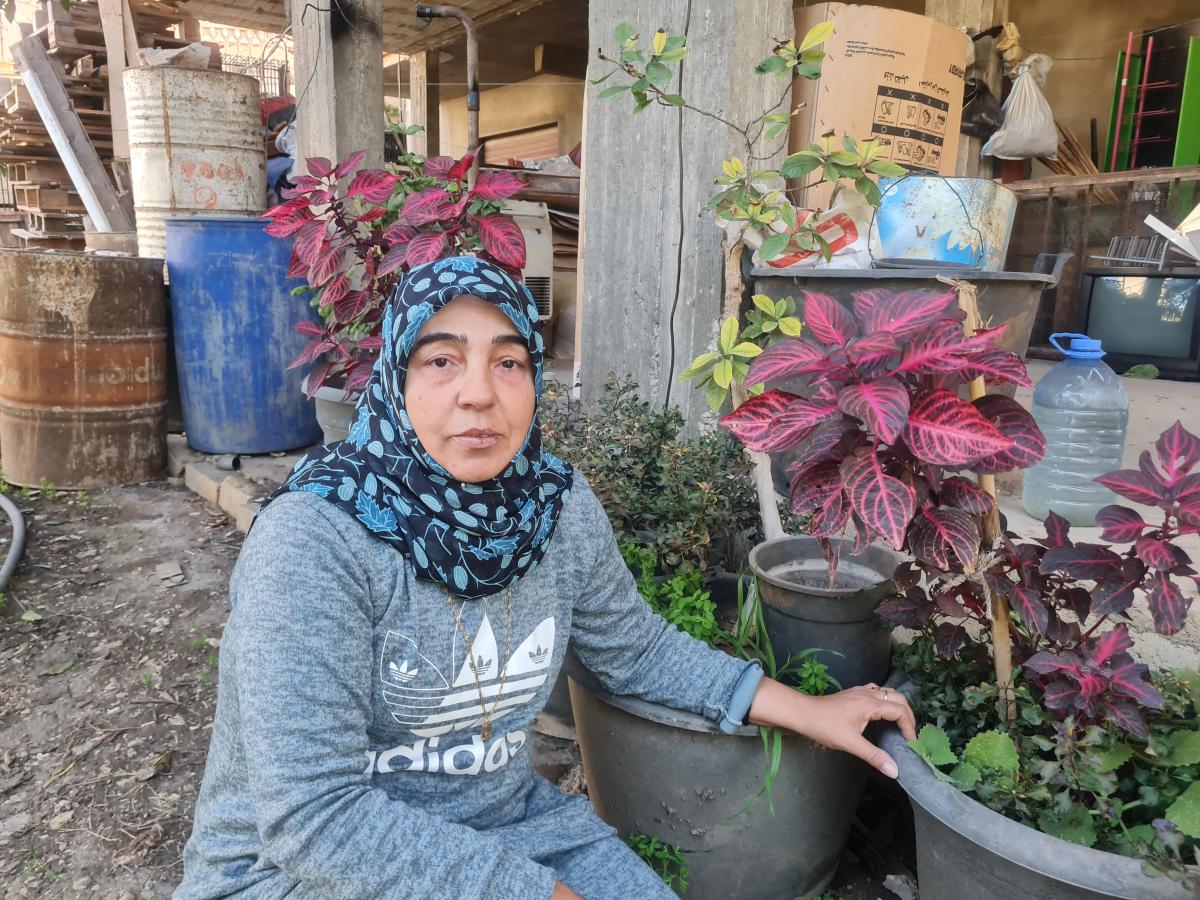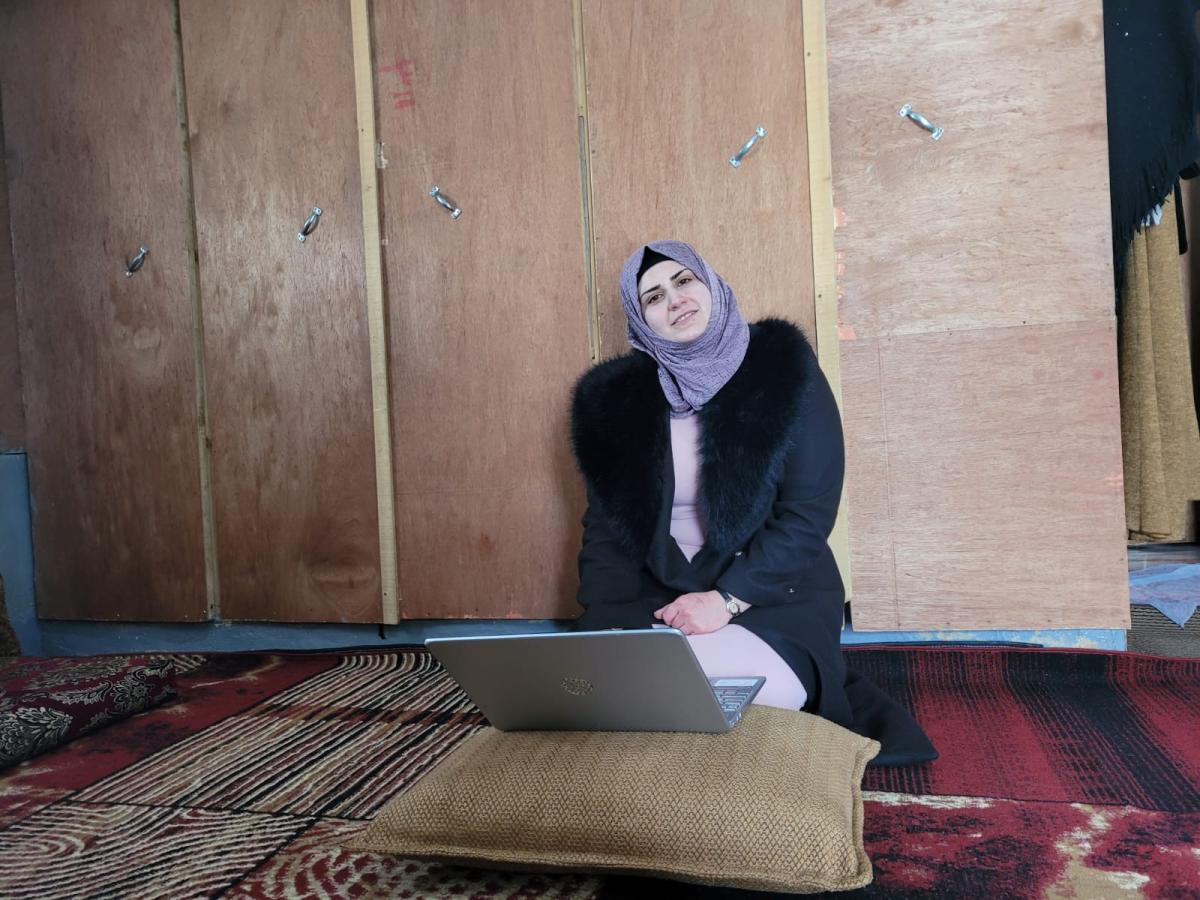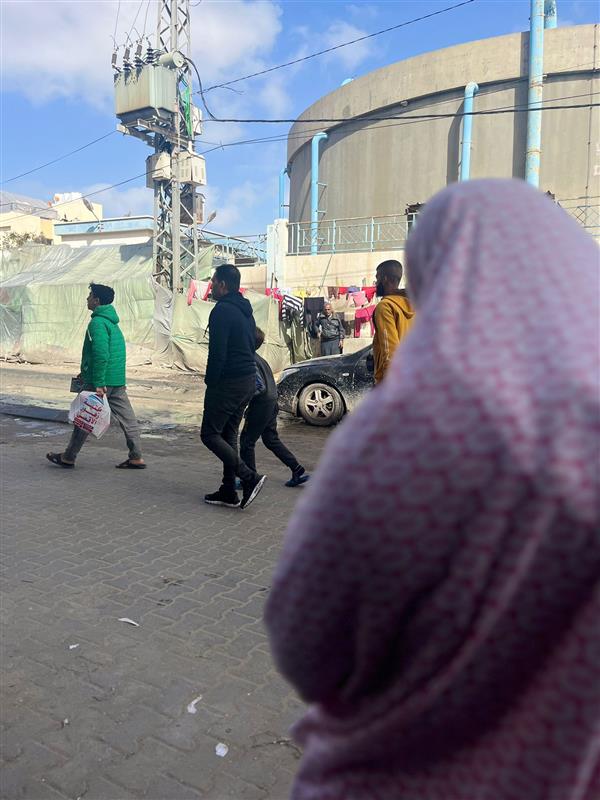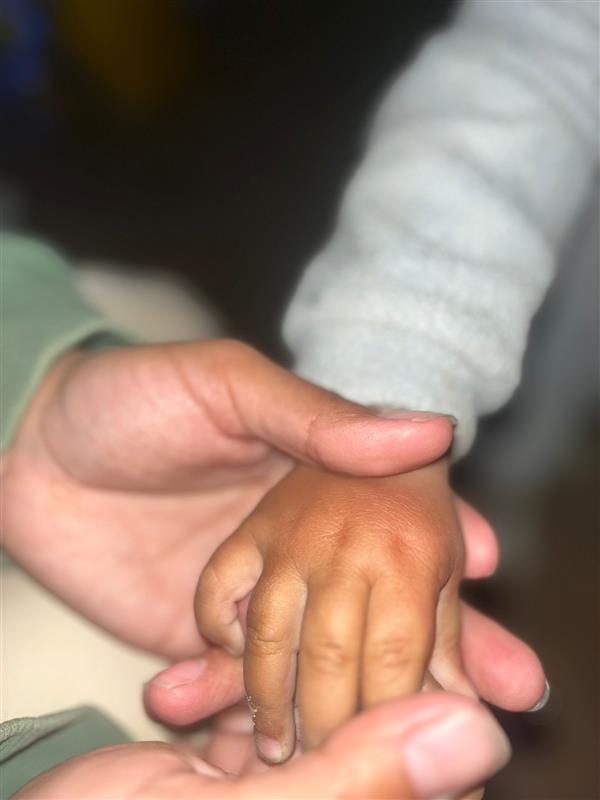News
Stories of Struggle and Success: The Hidden Testimonies of Women in Syria, Lebanon, Iraq and the occupied Palestinian territory
07/03/24
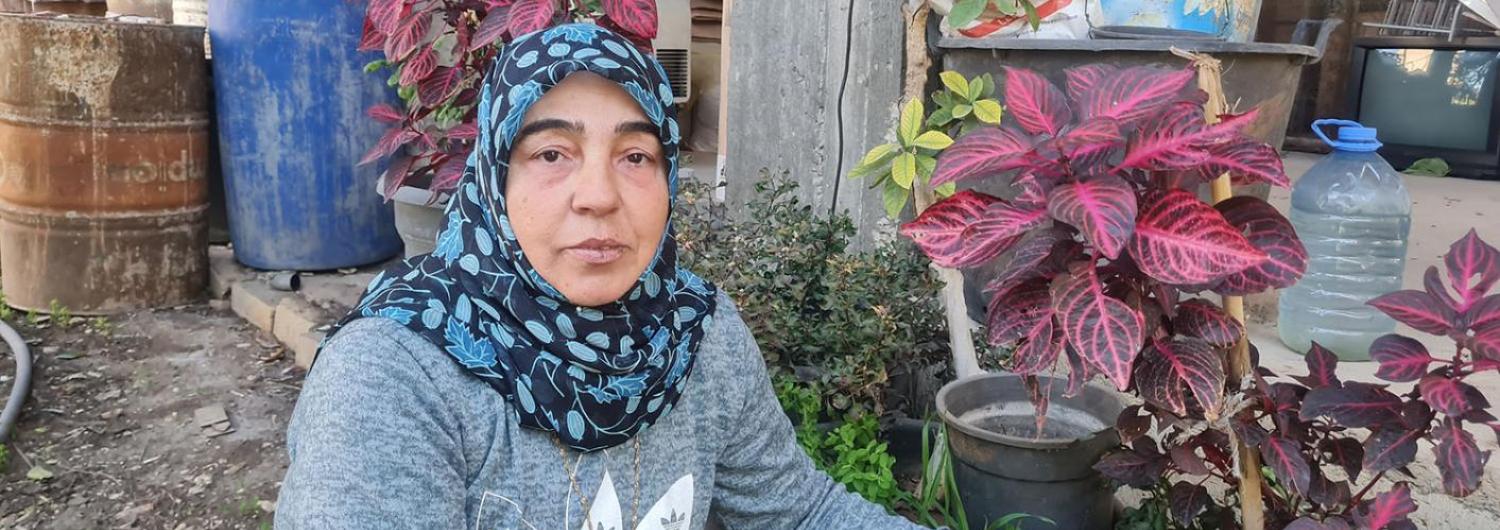
Wafaa, from Lebanon. © Action Against Hunger
This year, on International Women’s Day — and every day — Action Against Hunger recognizes the too-often hidden stories of the women in our lives. The gathered testimonies are stories from women across Syria, Lebanon, and the occupied Palestinian territory (oPt). Read more about their continued determination, resilience, motivation, and compassion.
STORIES FROM SYRIA
Zainab, described by the other women in her village as someone whose “boldness and enthusiasm helped us overcome the fear we lived with and ignore society’s view of us as a working woman.
Portrait of Zainab. © Action Against Hunger
Zainab, 53-year-old woman, from a Syrian village bore the weight of her parents’ loss from a tender age. Her educational journey led her to the attainment of a high school diploma. Living alone in her house, taking care of her siblings' children. Zainab says, "I lived through suffering and poverty with my siblings after the death of my parents, but that was a motivation to work hard." In a society where entrenched norms dictated that women should not seek employment and men were expected to be the primary providers while women roles should be limited to childcare and cooking. Zainab defied convention and embraced new ideas to secure her own livelihood.
Action Against Hunger met Zainab for the first time during a livelihood training course on food processing and preservation. She showed exceptional openness to new ideas to establish her own source of income. Also, she tried through discussions to help other women find simple and available ideas to generate a source of livelihood for themselves.
During her life, Zainab worked as a seasonal daily wager in agricultural lands in her village, she tells us, "I find solace in the earth's embrace, it breathes life into my weary soul, infusing me with a sense of purpose and vitality. Yet, the toll it exacts on my body is undeniable."
The project implemented by Action Against hunger offered an opportunity of income generating for women who met certain vulnerability criteria extending financial grants to deserving beneficiaries. The financial grants were not merely handed out in a single gesture; rather, they were distributed in two installments, each accompanied by visits aimed at providing guidance and support to the recipients to ensure the success of their entrepreneurial ideas. Zainab tells us "The generous financial grant granted to me by the organization served as both a tangible and intangible catalyst, empowering me to procure the necessary tools and raw materials to breathe life into my new business and propel its growth."
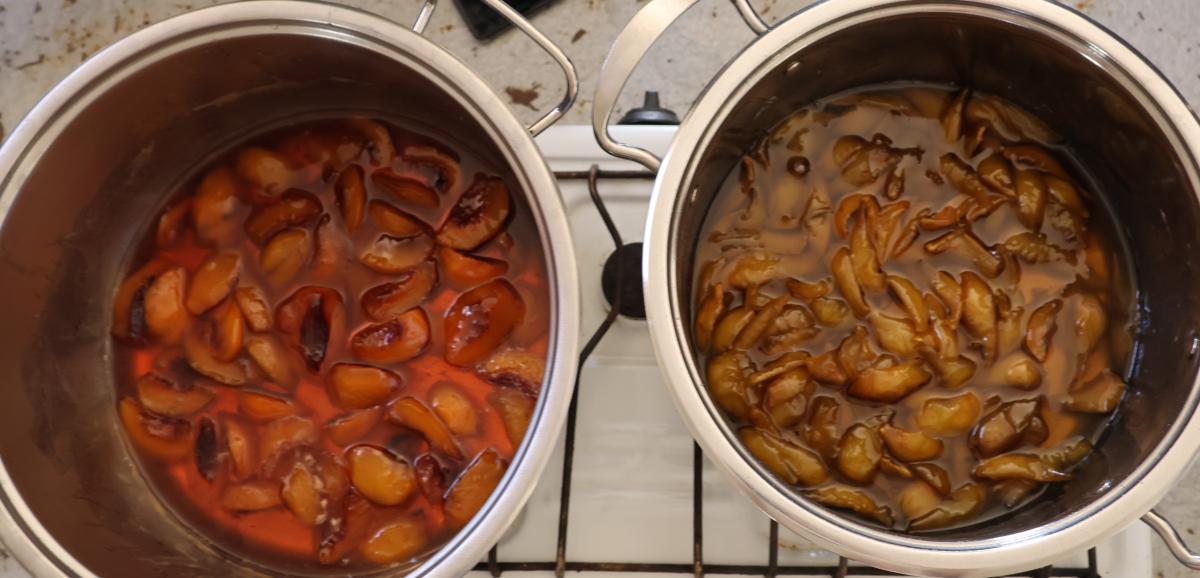
Jams prepared by the trainee women during the skill-building training provided by Action Against Hunger. © Action Against Hunger
Despite the restrictions imposed by the community in which Zainab lives, on women to be independent and have their own independent source of income, Zainab had her mark in persuading women to start their own businesses and convince their husbands that this work will increase income of their family, to face the outcomes of crisis long years and the decline in purchasing power. Using these simple phrases, Zainab was inviting all women to attend our training course, relying on her good reputation as everyone in the village respects Zainab and appreciates her. Men and women consider her a role model for her patience despite all the difficulties she experienced in her life.
Zainab reflected “starting a project was never easy, and we faced many obstacles me and other women in the village, especially those related to securing some tools and raw materials, which may require us traveling either to the city, which is 15 km far, or finding a market to sell our products in the other village which is 3 km far, and contains large bazaars through which we can sell our products”. In order to overcome the cost obstacle, Zainab and the remaining women formed groups and divided the cost of transportation among themselves to reduce its burden.
“My products became famous in the weekly Bazaar, and as a result of its high quality, marketing was not a problem, as I was able to sell my products quickly. On the days when I did not go to the bazaar, buyers would ask about me, and some customers would even ask about my village so that they could come… come and buy my products.”
Zainab was able to set an example for other women in the village, as many of them, about five, also started their own small businesses and began generating income and helping their families to improve their financial situation. One of Zainab’s neighbors tells us, “Zainab’s boldness and enthusiasm helped us overcome the fear we lived with and ignore society’s view of us as a working woman. Her conversations also had a great impact on our husbands’ way of thinking. When they began to see the success of Zainab’s project and that she started to make money, they were encouraged and convinced that we together can start our own projects.” Many women turn to Zainab for business advice. She is always happy to share the knowledge she has gained from applying the techniques taught to her during our Vocational training and adds tips from her own experience of the markets.
Zainab concludes her conversation by saying, “My life has completely changed for the better. Previously, I was able to secure money seasonally, and sometimes people might tend to employ younger daily wager regardless of their experience to complete the work quickly, but today, with my project, I will be able to secure my own income and cover my needs throughout the year.”
Zainab not only manufactures and preserves food products such as tomato paste, jams, and pepper molasses, but has also expanded into handmade clothes, which will help her increase her income and improve her chances of making a profit.
Hurriyah was the type of person who stood out in a crowd. Her extensive knowledge, experience, and enthusiasm shaped her into an agricultural leader: when she spoke, everyone listened: “The fruits of conservation agriculture will increasingly reveal themselves over the years,” she says. “I’m proud to be a part of this transformative approach within my community. We extend our gratitude to Action Against Hunger, hoping for prosperity upon our people and our land.”
Lentil crops grown using the method of conservation agriculture. © Action Against Hunger
When we first met Hurriyah, it was at the village school during our encounter with the families of the village, to launch our conservation agriculture (CA) Project for 2023. Despite the presence of nearly 135 men and women, Hurriyah stood out from the rest. The questions she posed reflected her extensive knowledge and experience in agriculture, as well as her enthusiasm for the CA approach we are launching in her area.
Before delving further into Hurriyah's story, it is essential to draw a clearer perspective about her village, which is a rural community of a tribal nature where most families are engaged in agriculture and livestock rearing—a tradition passed down from their families and primary source of income before the crisis. Although life is going back to its natural course in their village. Yet, economic hardship prevented them from resuming their agricultural activities as before. The rise in the prices of agricultural inputs and their scarcity made villagers reconsider their farming season, faced with the risk of a harvest that fails to produce any profit and could lead to further losses.
We were introduced to Hurriyah through her father, a farmer on his land and the headmaster of the school. They shared a strong bond. She was the daughter who had accompanied him to the fields since childhood and the most active one among her siblings. Every morning, she would wake up and head to the fields, passionately and lovingly carrying out agricultural tasks. Today, Hurriyah is a married woman in her forties, with six children—four boys and two girls.
Hurriyah told us, "Over the years, I noticed that the land began yielding less. Temperatures have been rising and rainfall has been getting scarcer. I observe the soil every day, it's no longer the same. The land that used to yield over 500 KG per hectare now yields less than 200 KG." This has directly impacted Hurriyah and her family's income. She is not the only one to have noticed this; most farmers in the area experienced the same decrease, prompting them to seek solutions.
Since the beginning of 2023, Action Against Hunger held numerous meetings and training sessions with the families in the village, to discuss conservation agriculture, methods and benefits over traditional practices involving plowing. However, persuading them to adopt the proposed practices meant replacing centuries-old traditions inherited from their forebears that used to give them unwavering confidence. and despite the trust we had established with the local community through previous interventions and practical examples, farmers were not convinced of CA approach and if a farmer tries to promote conservation agriculture, this might expose them to ridicule. For them CA means that they will end with one of two options: either a failed crop or a full farming season, and they can't risk it as it is closely tied to their living.
This is where Hurriyah played a pivotal role. Extremely enthusiastic to apply those practices, she used her gentle and popular leadership qualities, as well as her extensive farming experience, to convince other farmers. She is a trusted figure in her community, and when she spoke, everyone listened. She insisted on the practices of non-plowing, leaving agricultural residues, and following the agricultural cycle. Hurriyah said, "After the first session, discussions began among us -women farmers- about CA approach, and it later became our main topic. I spoke and explained to the village women the importance of this approach and its benefits during all family gatherings and events, to the point where most of our conversations were about conservation agriculture."
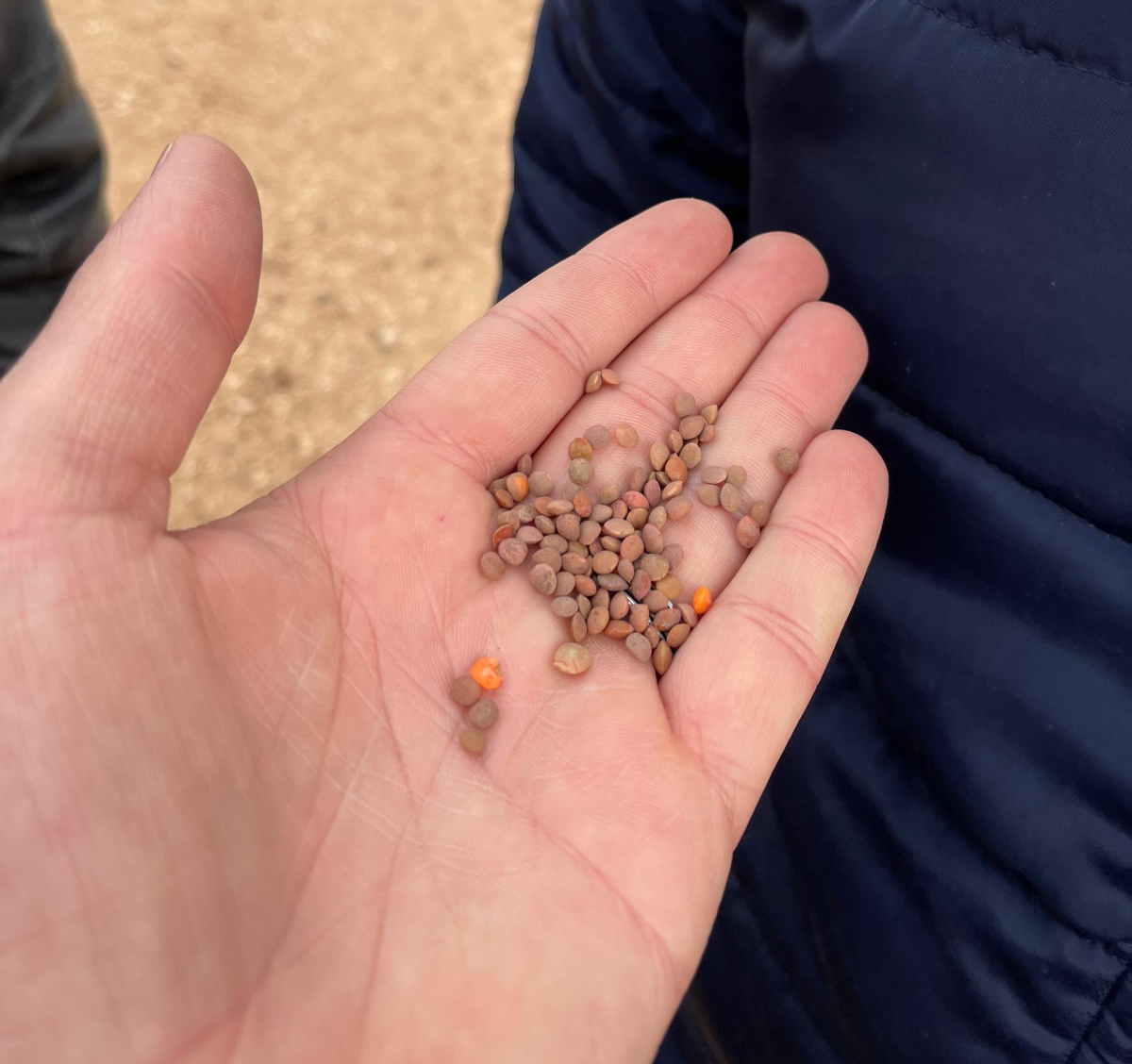
Lentil seeds provided by Action Against Hunger as part of the conservation agriculture approach.
Hurriyah helped convince more than 50 female farmers out of a total of 400 targeted farmers through daily face-to-face gatherings. Hurriyah has supported the adoption of CA practices by both male and female farmers but has been particularly instrumental in reaching and helping illiterate women.
One of them said, "Hurriyah helped me during the exams we took in the training; I dictate my answers to her, and she writes... I trust her." She also simplified examples presented by the trainers or rephrased their words in a simple manner using the local dialect, making the training more accessible to them.
She also played a prominent role in organizing lentil sowing among women after its distribution. Hurriyah said, "I am convinced of CA approach and trust the ideas Action Against Hunger is passing on to us. Through this, we have been able to save the costs of plowing the land, as well as fuel, effort, and time, by merging agricultural steps using the seed drill provided by the organization for each conservation agriculture unit."
Many women see Hurriyah as a role model. One of the farmers said, "I wasn't convinced of this approach at all, but when I saw Hurriyah efficiently working on the new seed drill machine, I asked if I could use it next year".
As the lentil seeds begin to sprout and grow, Hurriyah, speaking in her cherished local dialect, expressed, "The fruits of conservation agriculture will increasingly reveal themselves over the years, guaranteeing better yields. I’m proud to be a part of this transformative approach within my community. We also extend our gratitude to Action Against Hunger, hoping for prosperity upon our people and our land."
STORY FROM IRAQ
Ouma Ali: "“Since I was nine years old, I started working in agriculture with my family. I feel that this land is like one of my children. I feel that it is a part of me.”
© Meethak Al Khatib for Action Against Hunger
"I started farming when I was 9 years old. Over the last years, the level of water has decreased and, at the same time, salinisation has increased, which significantly impacted our production. I feel that my land is a part of me, and I would do whatever it takes to protect it."
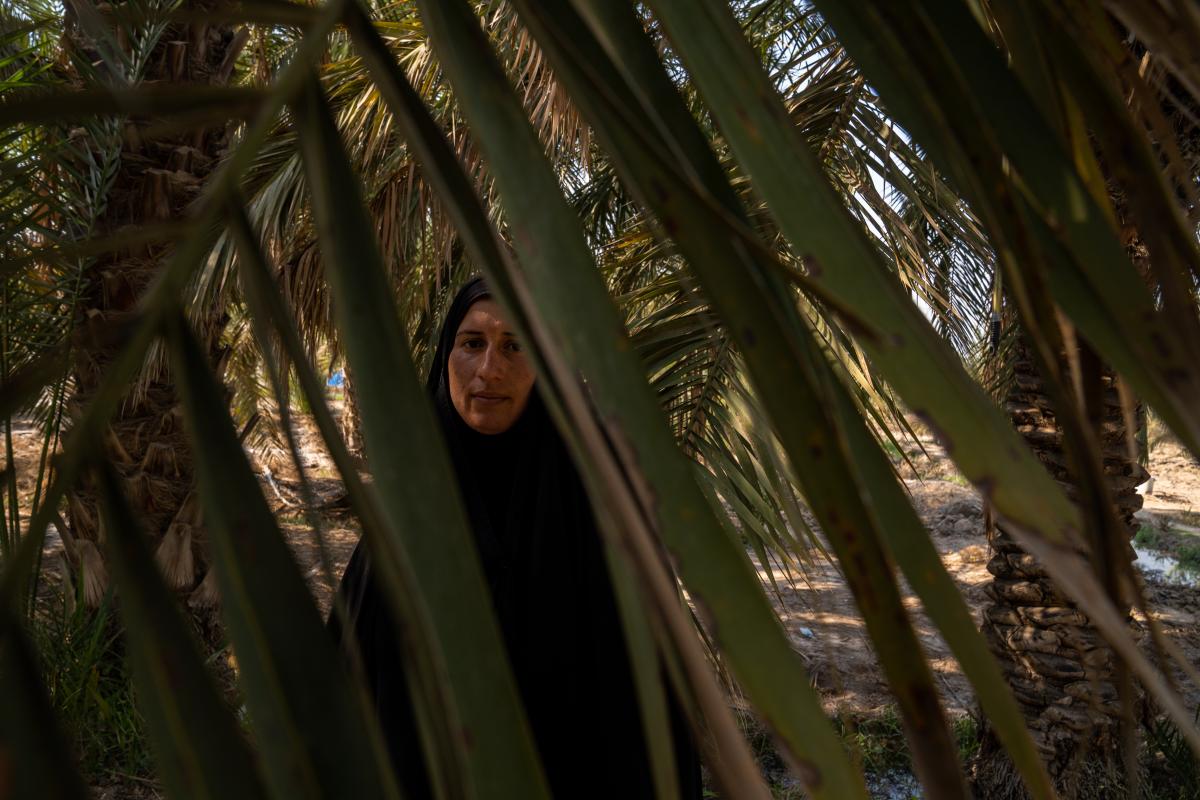
© Meethak Al Khatib for Action Against Hunger
STORIES FROM LEBANON
Wafaa wants to tell every woman out there: “Rely on yourself, for you are your greatest asset. With determination and self-reliance, even the toughest challenges can be overcome.”
Portrait of Wafaa. © Action Against Hunger
"The conditions and days were difficult, so we worked in agricultural tents, in citrus, lemons, and olives," Wafaa shares. "The days are what made us strong, and the difficult circumstances made us rely on ourselves."
"If there is no one to help a person, he must rely on himself," she emphasizes. "The more we work, the stronger we become, developing our individual identity, and becoming more aware of our value. Difficult circumstances require the individual to be strong."
Their journey took a turn when they decided to benefit from the opportunity of work provided by Action Against Hunger. "We challenged the whole world and worked, and we succeeded," Wafaa proudly states.
"To every woman out there, Wafaa's message is clear," she declares. "Rely on yourself, for you are your greatest asset. With determination and self-reliance, even the toughest challenges can be overcome."
Wafaa's journey is a testament to the power of resilience, proving that within each of us lies the ability to succeed over hardship. "I tell every woman to work and rely on herself because she only has herself and her hands," she concludes.
Nawwar is clear in her message: “Never, ever give up and always fight. Don’t be the receiver, be the giver. No matter what challenges we face in our lives, we must always emerge stronger, with each challenge strengthening us even further.”
Portrait of Nawwar. © Action Against Hunger
"It was incredibly difficult to find balance in my life; being a working woman, pursuing my educational journey, and raising my children in the right way while ensuring they receive proper education," Nawwar reflects. "The responsibilities are immense, but I love my life and the tasks assigned to me because I have many motivations."
"The inner strength I possess, knowing that I must continue and be the pillar of strength for my children, so they never feel the need for anyone or lack anything, is the driving force that encourages me to persevere," she shares.
Nawwar's message to every woman is clear: "Never, ever give up and always fight. Don't be the receiver, be the giver. No matter what challenges we face in our lives, we must always emerge stronger, with each challenge strengthening us even further."
Nawwar's story is a testament to determination and the resistant spirit of a mother striving to create a better future for her children and herself against all odds.
STORIES FROM THE OCCUPIED PALESTINIAN TERRITORY
A 19-year-old university student at the University College of Applied Science in Gaza just wants to go to school. “I used to study IT, multimedia branch, and I was very happy with it. I studied at UCAS. But it’s not my fate to continue my education. This academic year is gone, and so is my life.”
© Action Against Hunger
“Honestly, my life of displacement is very, very difficult. I miss my family because of displacement; some people left Gaza, and some got stuck here. I miss my university and I miss my life. I used to study IT, multimedia branch, and I was very happy with it. I have three years left to graduate but I’m not even going to finish them. I had many dreams and aspirations, and I still do, but war doesn't have a roadmap. You don't know when it will end. Right now, I just want to live abroad, continue my education, my life, my university, my studies, and the dreams and aspirations.
“None of the means of life are available to anyone. There's no clean water, no electricity at all, and the internet sometimes works if you’re lucky, sometimes it doesn't.”
“We are living in a state of non-existence. I wish everyone could understand this. We're living in scarcity, so it's natural for humanitarian aid to be important because people here don't eat like the rest of the world. Access to clean water and food is deprived.”
“There’s a part of the day called the “dough-making” part because the occupation has deprived us of electricity or bakeries, so we knead, bake, and eat.”
“We're all crowded together, the entire family, including my married brother, is crowded in a 20m2 tent. The situation is tough. There's no question of privacy in war at all.”
A mother of three children, one of whom was born in Gaza during the war, just wants dignity for herself and her children. “The life of displacement is humiliating. I have a baby who needs care, clean air, and sunlight, but we’re in a classroom with no sunlight…I’ve improvised a small bathroom for my kids in the classroom. I invented it to avoid the humiliation of the long queue to the common bathroom, especially that little children can’t wait this long or control themselves.”
© Action Against Hunger
“The life of displacement is humiliating (...) There are many families in the same room, divided into several sections for each family to have some privacy in such conditions, but there's no real privacy with the only thing separating us is a blue sheet."
“The queue to the bathroom is huuuuuuge. I've improvised a small bathroom for my kids in the classroom. I clean it myself."
“Our lives before the war... We were settled in our homes, able to provide our children with everything they needed: clothing, shelter, security, stability, and education."
“The children eat first; they can’t tolerate hunger, but we, the grownups can be patient, although, I'm breastfeeding. I should be eating well, but the baby came into difficult circumstances."
“Safety ... There's no salvation, no hope (...) This time, my third child came to life during the war. I never expected the war to last long enough for me to give birth during it, in a displacement camp inside a shelter school. Shelter schools are chaotic; imagine a pregnant woman there (...) I had a bathroom crisis, so I had to limit my water intake. There was a time when I avoided going to the bathroom because it was chaotic. I got contractions one night, I stayed until I couldn't hold it anymore. My father-in-law took me to the hospital. If we called an ambulance, there was no communication. (...) My parents were far away, and it was night and unsafe. (...) My childbirth was easy. There was no time for tests or examinations; they took me as an emergency case, and I gave birth naturally. I left the hospital at 9 in the morning."
"With the scarcity of food and lack of care my baby came small, weighing only 2 kilograms (...). All the clothes I had were left in a house that we fled and was later bombed. We left with only the clothes we were wearing with use when we were displaced. This is the fourth displacement for us."
